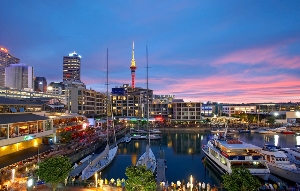Tech and the real estate trajectory
The ongoing expansion and innovation of the technology sector across Asia Pacific (APAC) is fuelling new possibilities for tenants and owners alike a new report from Colliers International reveals.
Thursday, June 24th 2021, 12:37PM

Technology is the most important business sector globally. This fast-growing sector makes up 65% of the world’s top 20 public companies by market capitalisation.
In fact, technology companies are now the major booster of office leasing across APAC, possibly accounting for 20-25% of demand for office space in the region over the next five years, the Colliers’ report says.
It is no different in Auckland, where there are a number of technology clusters, providing opportunities for developers and investors, according to Chris Dibble national director of research at Colliers.
While the sector continues its aggressive expansion, Colliers’ experts say landlords and investors should get busy responding to the requirements of technology groups looking for redevelopment or conversion opportunities for built-to-suit office space as well as landbanks to roll out logistics and data centre platforms.
“Investors with ageing buildings could also look for partnerships with technology companies to redevelop their assets with a clear exit once developments are completed,” says Dibble.
Those investors with landbanks and development capabilities in areas such as logistics warehousing or data centres should consider joint ventures with technology companies to develop these assets to meet their partners’ requirements.
These ventures can be one-off developments or ongoing partnerships spanning multiple projects.
Clusters
Across New Zealand, Auckland is the powerhouse of the technology sector, mainly in the CBD but also elsewhere.
New Zealand’s technology companies with international reach include Weta Digital, Rocket Lab and Xero.
The sector’s growth has exerted greater influence over the CBD’s office market in recent years. At the end of last year, technology companies occupied 11% of the total office stock and 12% of the prime-grade inventory.
“Significant technology clusters have formed within the CBD with leading players showing a strong preference for the city’s northern and waterfront precincts, particularly the Victoria Quarter, Viaduct Harbour and Wynyard Quarter, which is the city’s innovation precinct,” says Dibble.
Technology companies including Datacom, Australasia’s largest homegrown technology company, and IBM occupy 17% of Wynyard Quarter’s office space.
At the heart of the precinct is GridAKL’s innovation campus offering co-working environments which house a mix of startups, SMEs and larger companies.
The city’s Victoria Quarter has the largest penetration of technology businesses accounting for 30% of all office space tenanted by the CBD’s technology firms. The most significant player is Spark, the country’s largest telecoms and digital services company.
Adjoining Viaduct Harbour precinct houses Microsoft, HP and AT&T which, along with other technology companies, occupy 21% of the precinct’s office space.
The country’s technology industry is the third-largest export earner and could become its largest by 2030.
In 2020 the nation’s largest 200 technology companies generated export revenue of $9.9 billion, up 8% year-on-year. This revenue is forecast to reach $14 billion by 2030.
The industry now comprises more than 21,400 companies employing over 120,000 people.
New Zealand’s technology companies have attracted significant overseas investment. In the opening half of this year, acquisitions of the country’s technology companies totalled more than $2.1 billion, says Dibble.
| « Commercial property returns all-time high | Commercial property sales booming » |
Special Offers
Comments from our readers
No comments yet
Sign In to add your comment
| Printable version | Email to a friend |


